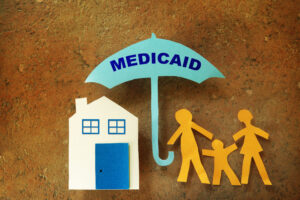Recognizing the Signs a Loved One May Need Additional Care

As our loved ones age, it’s natural to wonder whether they need extra help with daily tasks. While many seniors thrive independently, there are often subtle signs that suggest they may need additional care. Recognizing these signs doesn’t always mean a major lifestyle change is needed immediately. Sometimes, small adjustments—like modifying the home for safety, arranging part-time help, or setting up meal deliveries—can make a significant difference.
The goal is to ensure your loved one remains comfortable and safe without compromising their independence any more than necessary. Identifying these signs early, acknowledging them early, and having an open conversation about care needs can help you take steps toward finding the right balance of care.
This article will explore common signs that a loved one may need more support.
Signs That a Loved One May Need Additional Care
- Changes in Personal Hygiene and Appearance If your loved one appears disheveled, neglects personal hygiene, or wears dirty clothes, this can indicate that managing daily grooming routines has become difficult. Unbrushed hair, unshaven faces, or a decline in overall cleanliness are often signs of underlying struggles with self-care.
- Difficulty Managing Household Tasks If you notice piles of unwashed dishes, accumulating laundry, or a home that is not as tidy as it used to be, it may suggest that your loved one is having difficulty keeping up with household chores. This may also include problems with tasks like cooking, taking out the trash, or paying bills on time.
- Frequent Memory Lapses or Confusion Everyone forgets things occasionally, but if your loved one starts missing appointments, repeatedly forgets important details, or experiences disorientation (such as getting lost in familiar places), these could be early signs of cognitive decline, such as dementia or Alzheimer’s disease.
- Social Withdrawal or Isolation Social interaction is important for emotional health, but seniors who become increasingly isolated or uninterested in activities they once enjoyed may be experiencing depression or declining health. Reduced engagement with friends, family, and community may indicate they need help reconnecting or managing their emotional well-being.
- Unexplained Weight Loss or Poor Nutrition If your loved one has lost weight or seems to be eating poorly (e.g., surviving on unhealthy snacks or skipping meals), it may suggest that they are having trouble preparing food or grocery shopping. Weight loss or malnutrition can also be signs of underlying health issues or a lack of motivation to eat.
- Mobility Issues and Frequent Falls Physical changes, such as difficulty walking, struggling to get up from a seated position, or frequent falls, can indicate a need for additional support. Mobility issues may require assistive devices or home modifications, but they can also point to more serious health concerns that need to be addressed.
- Changes in Mood or Behavior Mood swings, increased irritability, or sudden bouts of anger can be signs of emotional stress or cognitive decline. If your loved one seems to be behaving out of character or becomes unusually anxious or paranoid, it could indicate mental health changes that require professional attention.
Keeping a Balance Between Independence and Support
Recognizing these signs doesn’t always mean a major lifestyle change is needed immediately. Sometimes, small adjustments—like modifying the home for safety, arranging part-time help, or setting up meal deliveries—can make a significant difference. The goal is to ensure your loved one remains comfortable and safe without compromising their independence any more than necessary.
Not sure how to begin this often difficult conversation? We’ve put together some tips for initiating and navigating this discussion with care, compassion, and respect.


